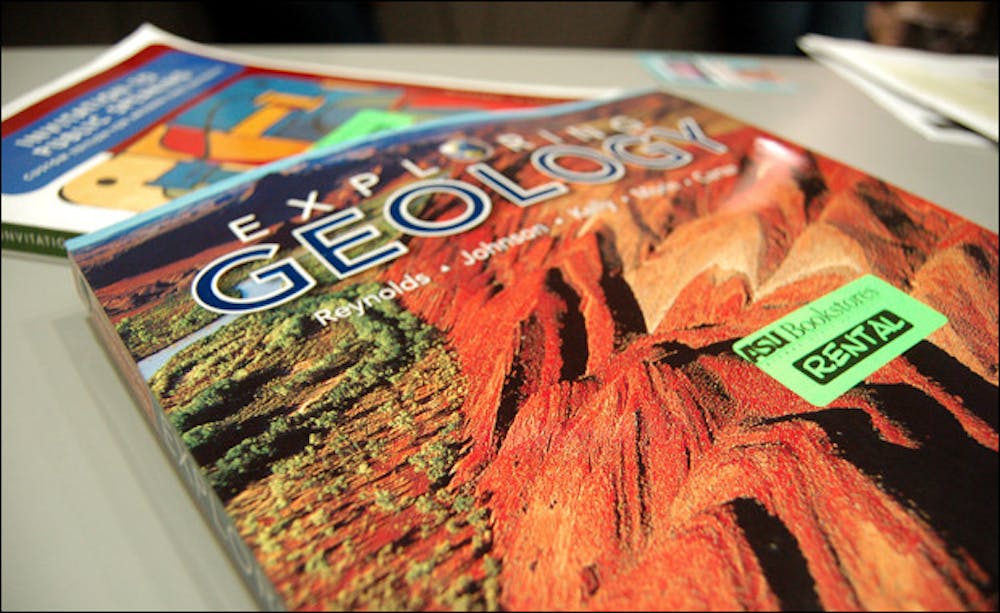Textbooks may become less of a financial burden for students with the introduction of a new textbook initiative of the Arizona Board of Regents.
“[We] are very impressed with how seriously the universities have pursued reducing the cost of textbooks to students and with the range of initiatives they are employing, including establishing textbook-rental programs,” ABOR President Fred Boice said.
A textbook-rental pilot program, launched this semester at the Tempe campus, allows students to rent certain books for a semester.
“It’s an important measure because, first and foremost, it saves students money,” said accounting junior Andrew Rigazio, Undergraduate Student Government’s vice president of policy.
During the pilot, the books for COM 225, Public Speaking and GLG 101, Introduction to Geology, are available for rent at the Tempe campus bookstore.
Communications sophomore Ashley Coleman said she thinks most students will utilize the new program.
“A lot of students resort to buying their books elsewhere,” she said. “If you know for a fact you aren’t keeping the book after the class, such as an English major buying a chemistry book, then the rental option is a very good idea.”
The initiative’s goal is to eventually provide rental books for most of the large general-studies classes, Rigazio said.
Including upper-division classes in the program is not feasible because the required books for those classes change too often, said Rob Meyer, book division manager for the Tempe campus bookstore.
“The logistics of the program are not conducive to having every single title available for rent. We have over 14,000 titles in our stores,” he said.
The rental fee is half-off the listed price, Meyer said. The student signs a contract agreeing to return the book at the end of the semester. The return date for the fall semester is Dec. 19.
In order to make a book available for rent, professors must agree to use the same textbook for a certain number of semesters, Meyer said.
“If we rent that book for a certain percentage, then we have to use that book for so many semesters for us to actually get our money back for the initial investment,” he said.
If professors agree to the terms, the rental program will become accessible in the other three campus bookstores.
Another factor in the success of this program is how many rented books are returned at the end of the semester, Meyer said.
“After talking to other [college bookstores] around the country that actually run rental programs, their biggest issue is getting the books back from students,” he said.
Failure to return rented books result in the full listed price of the book being charged to the student’s account.
One of the downsides to renting, Meyer said, is that the book must be returned in the condition it was rented out in.
“I like to highlight, underline and write in my books while I’m studying,” he said. “You can’t do that with rented books.”
Although being able to rent a book at 50 percent of the listed price as opposed to buying it used for 75 percent of the listed price sounds like a good deal, Meyer suggests it may be more beneficial just to buy a used book.
“There are certain situations where buying a used book saves you more money than renting it,” he said. “I recommend evaluating your situation before renting.”
Reach the reporter at jodi.cisman@asu.edu.




